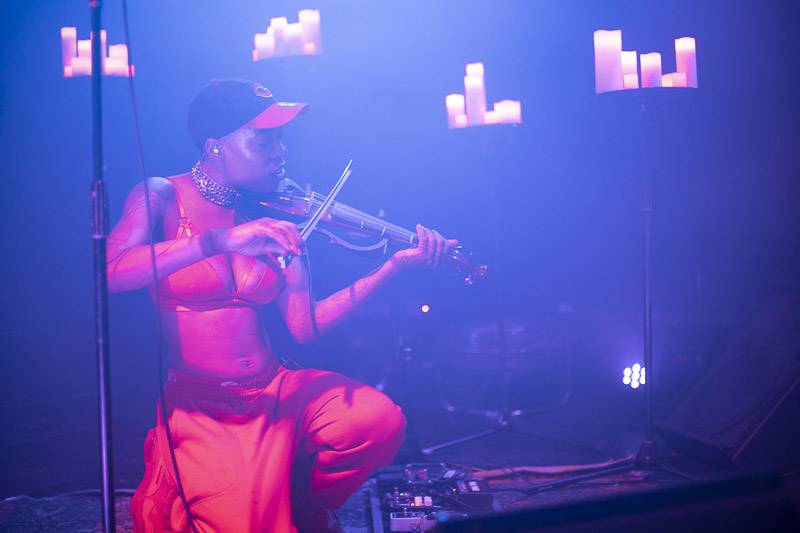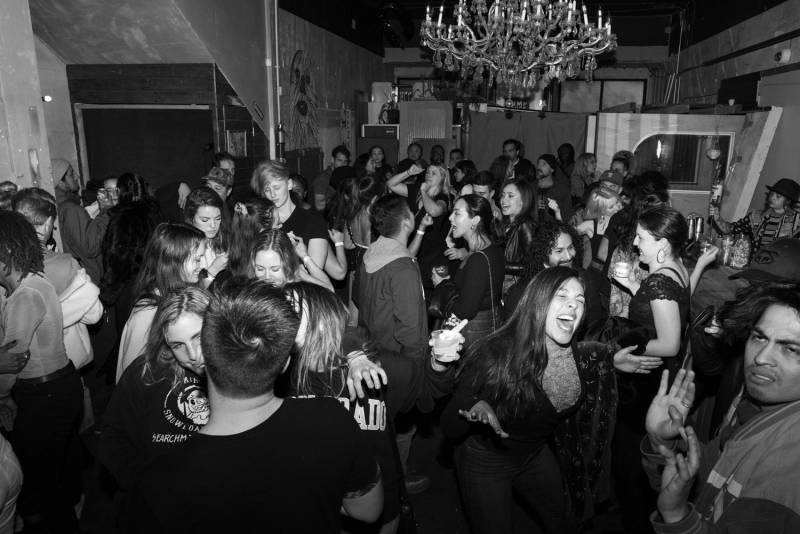Before the pandemic, Starline Social Club overflowed with chattering party-goers on Fridays and Saturdays, hosted low-key folk and jazz shows during the week and offered a safe space to belt out karaoke every Sunday. Since shelter-in-place orders began in March, it’s mostly sat boarded up, apart from a short-lived period of serving takeout.
The popular Oakland bar, club and eatery’s owners say they’ve found themselves in a tough predicament as bills pile up, their Paycheck Protection Program loan runs out and legislation to help music venues stalls in Congress. And to avoid a potential future foreclosure on their property, they decided to sell the building and business. They hope a buyer with deeper pockets will carry forward Starline’s legacy after the pandemic is over and full-capacity concerts resume again.
“We’re not worried about our own egos and attachment to the business,” says Drew Bennett, one of the club’s four managing owners. “Our primary goal is to land the baby in safe hands.”
A historic ballroom built in the 1890s, Starline Social Club was once an Odd Fellows Hall and, later, an advocacy group for deaf people. It operated as a venue called 2232 MLK in the 2000s, and housed the Starline janitorial supply company. The building was mostly in disuse when one of the Starline Social Club owners, Adam Hatch, first visited it for an underground show over 10 years ago. He later rented it with several others as an unofficial artist live-work space, and, after undergoing the proper permitting processes, opened it as a bar, restaurant and music venue with seven business partners in 2015. They later acquired the building in 2018.
“I always had been doing underground kind of events, so the idea that we could do something legally or above ground was weird to me,” says Hatch. “But we got our stuff together. And when we got enough people involved and realized there was this opportunity to create this weird business that does shows, sells food and does stuff for the community, it got real.”



